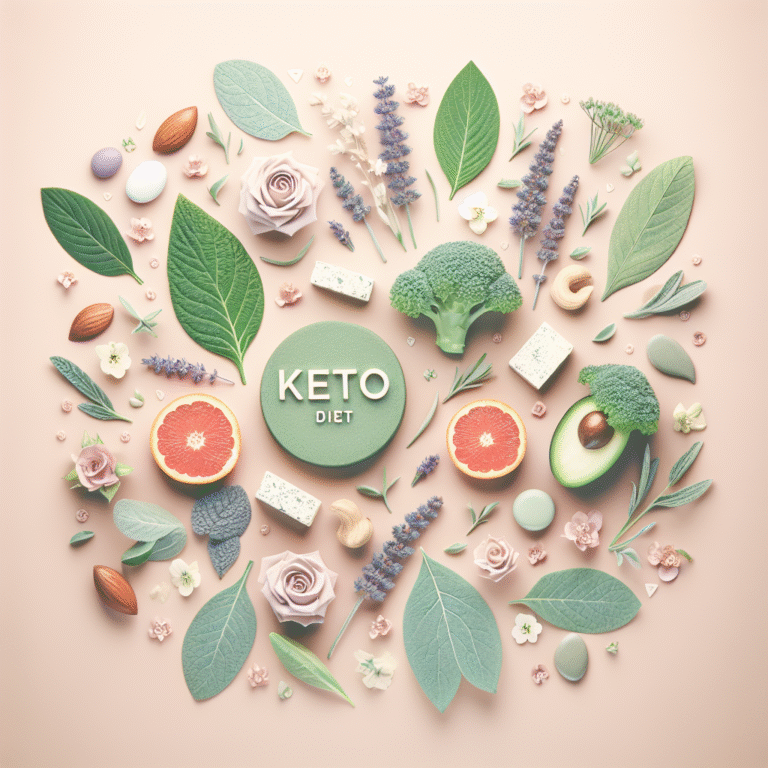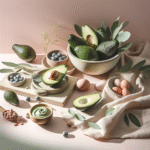
Unlocking the Power of Olives and Cheese for Keto Energy
Imagine struggling with a low-carb diet. You’re committed, but the transition is taxing—your energy fluctuates, focus wavers, and the cravings test your resolve. The promises of endless vitality and weight loss seem distant. You’re not alone in this struggle, but could there be a simple, delicious way to amplify ketone production? Read on to discover if olives and cheese might be your unexpected allies in the quest for ketosis.
Understanding the Ketogenic Diet
The ketogenic diet, or keto, is a high-fat, low-carbohydrate dietary approach that aims to transition the body into a state of ketosis. In ketosis, the liver converts fat into ketones, which become the primary energy source. According to the [Mayo Clinic](https://www.mayoclinic.org/), maintaining ketosis can support weight loss, improve mental clarity, and stabilize energy levels by using fat instead of carbohydrates for fuel.
Why Olives and Cheese?
Olives and cheese, two flavorful food staples, are often discussed in the keto community. They are not only mouthwatering but align with keto’s macronutrient requirements.
– Olives:
– High in monounsaturated fats
– Rich in antioxidants
– Negative glycemic load
– Cheese:
– High-fat content
– Contains essential fatty acids
– Source of protein and calcium
Both foods are low in carbohydrates, which makes them ideal for encouraging the body to switch over to using fat as fuel.
The Science of Macronutrients on Keto
To understand if olives and cheese can speed up ketone production, consider the macronutrient composition:
– Fat Content: The primary driver of ketone production. The National Institutes of Health note that dietary fat is crucial for converting fatty acids into ketones.
– Carbohydrate Impact: Minimally-present in olives and cheese, aiding in maintaining low blood sugar and insulin levels, essential for ketosis.
– Protein Balance: While necessary for muscle maintenance, excess protein can convert to glucose, potentially disrupting ketosis.
This delicate balance is why pairing olives and cheese might just be the keto-friendly hack you need.
Personal Transformation: Emma’s Keto Journey
Emma started her keto journey facing similar struggles. Swamped by mental fog and persistently hungry, she sought advice and was recommended to incorporate more high-fat foods, particularly olives and cheese. Within weeks, her energy levels stabilized, mental clarity improved, and she achieved sustainable weight loss. Her story exemplifies how strategic food choices can transform your keto experience from a struggle to success.
Nutritional Breakdown: Olives vs. Cheese
Understanding their nutritional profiles can help determine their effectiveness:
| Nutrient | 100g Olives | 100g Cheese |
|---|---|---|
| Calories | 115 | 406 |
| Total Fat | 11g | 33g |
| Monounsaturated Fat | 7g | 10g (varies by cheese type) |
| Carbohydrates | 6g | 1g |
| Protein | 0.8g | 25g |
| Calcium | 52mg | 721mg |
Frequently Asked Questions
Q: Can any types of cheese be beneficial on keto?
A: Yes, but prefer high-fat, low-carb options like cheddar, brie, and goat cheese.
Q: Are there any potential drawbacks to consuming too many olives?
A: While nutritious, olives are high in sodium, which can lead to increased blood pressure if not consumed in moderation.
Q: How quickly can eating more olives and cheese influence ketosis?
A: It varies by individual, but increasing healthy fats while minimizing carbs can help speed up the transition to ketosis.
Practical Tips for Incorporating Olives and Cheese
– Snack Ideas: Pair olives with cheese for a satisfying snack. Their combined fat content helps maintain fullness and boost ketone levels.
– Meal Preparation: Add olives to salads or mix in cheese for higher fat intake.
– Mindful Consumption: Balance portions to avoid over-consuming calories and sodium.
Conclusion
Pairing olives and cheese can indeed aid in accelerating and maintaining ketosis thanks to their complementary high-fat, low-carb profiles. If you’re embarking on a keto journey, start by integrating these foods into your diet in moderate amounts.
As you navigate through the ups and downs of keto, remember that persistence and smart food choices are key. Ready to revolutionize your keto experience? Incorporate olives and cheese into your meal plan today and step closer to seamless energy and lasting results.
Certainly! Let’s explore some additional insights, practical tips, and lifestyle advice tailored to making your ketogenic journey even more effective and enjoyable.
Bonus Tips for Enhancing Your Keto Experience
1. Variety is Key:
– Incorporate different types of olives and cheese to avoid monotony. Explore marinated olives or try various cheese flavors like smoked gouda or blue cheese.
2. Stay Hydrated:
– The keto diet has a diuretic effect, which can lead to dehydration. Enhance your water intake and consider electrolyte supplements.
3. Monitor Your Macros:
– Keep track of your daily intake to ensure you’re meeting your fat, protein, and carbohydrate goals—adjust portions of olives and cheese as needed.
4. Combine with Vegetables:
– Pair olives and cheese with non-starchy vegetables like spinach or kale to boost fiber intake and maintain digestion regularity.
5. Focus on Quality:
– Choose organic or high-quality olives and cheese to maximize nutritional benefits and avoid additives.
Extra Frequently Asked Questions
Q: Are there vegetarian options for those avoiding dairy but still wanting to include olives?
A: Yes, you can enjoy olives with dairy-free cheese alternatives made from coconut milk or nuts, which are still high in fat content.
Q: How does alcohol consumption affect ketosis?
A: Alcohol can disrupt ketosis because it’s processed in the liver before fats, potentially pausing ketone production. Opt for low-carb drinks if you choose to drink.
Q: Can olives and cheese aid in headaches during ketosis?
A: Headaches often result from electrolyte imbalance. While olives are high in sodium, which may help, ensure a balanced intake of potassium and magnesium (found in foods like avocados and spinach).
Q: How do I know if I’m in ketosis?
A: Signs of ketosis include increased ketones in blood or urine (trackable with at-home testing kits), improved concentration, less hunger, and potentially fruity scented breath.
Lifestyle Advice for Sustaining Keto
1. Plan Meals Ahead:
– Meal prep for the week with keto-friendly recipes incorporating olives and cheese. This minimizes stress and helps maintain commitment.
2. Mindful Eating:
– Eat slowly and savor each bite to enhance your enjoyment and prevent overeating. Pay attention to your body’s fullness signals.
3. Incorporate Exercise:
– Combine your keto diet with regular physical activity. This helps burn additional calories and can further optimize ketone production.
4. Social Situations:
– Navigate events by offering to bring keto-friendly dishes or snacking on olives and cheese beforehand to avoid temptation.
5. Stay Positive and Flexible:
– Understand that everyone’s keto journey is unique. Adjust based on personal experiences and remain open to tweaking your approach.
By integrating these bonus tips, guidelines, and lifestyle adjustments into your everyday routine, you’ll be positioned for long-term success on your ketogenic journey. Remember, making informed choices and maintaining a balanced lifestyle are keys to thriving on keto!






